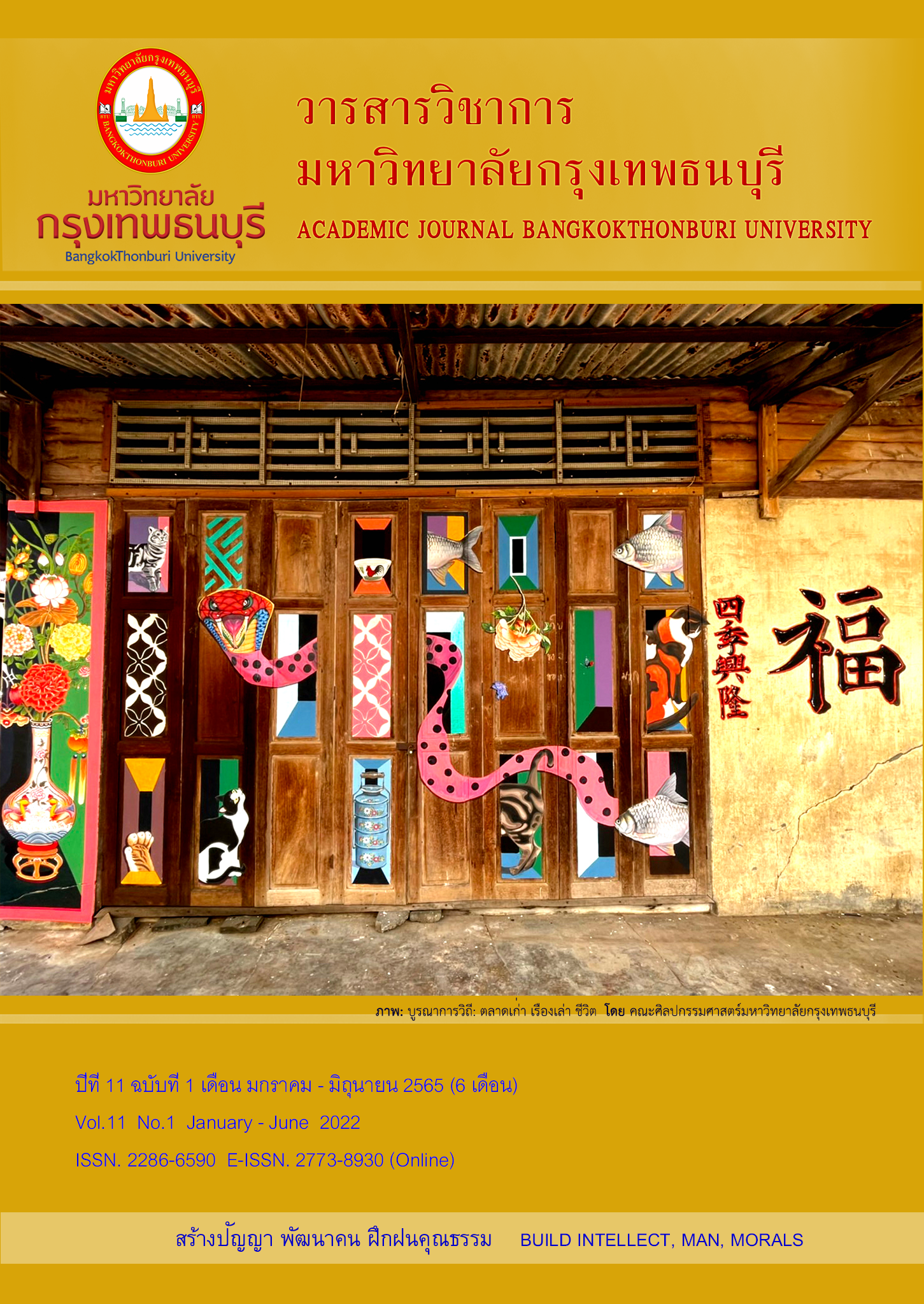Economics Exchange and Support within skip-generation families
Main Article Content
Abstract
The moving of migrants to developing areas for working while leaving their children with their grandparent caregivers causing the skipped-generation family of two generations, family traits with grandparents and child living together without parental members. This study aims to investigate the occurred exchange support between the grandparent caregivers and the migrants, using the data of research project entitled “Migration and skipped-generation families in Thailand” The qualitative research methodology was used for this study, and collecting data from elder population, the migrants’ grandparent caregivers aged 50 years and over in 3 provinces, Pitsanulok, Khonkean and Kanchanaburi. The data collection was conducted between October and December in 2013 and 42 samplings of households were collected. Content analysis was used with NVivo program for qualitative data analysis.
The findings of the study showed the appearance of two characters of skipped–generation exchanges: 1) Economics exchange in term of financial and materials support 2) Communicating and support exchange in term of times giving to each other between migrants and their grandparents, not only receiving financial support from the migrants, but the grandparent caregivers also devoting time raising their grandchildren with love and willingness. They were proud of doing the tasks and accepted the burden without expectation in term of the amount of financial support. They were only expecting mobile communicating regularly and opportunity of visiting home for the love and care from the migrants, to relief their suffering feelings of loneliness concerning the burden of raising grandchildren, this helped supporting their mental health, and reducing their stress level of raising grandchildren alone.
Article Details

This work is licensed under a Creative Commons Attribution-NonCommercial-NoDerivatives 4.0 International License.
References
Abas MA, Punpuing S, Jirapramukpitak T, Guest PT, Tangchonlatip K, Leese M, Prince M. (2009). Rural-urban migration and depression in ageing family members left behind. Br J Psychiatry, 195(1), 54-60.
Asavanirandorn C., & Pothisiri W. (2015). Support Exchanges between Aging Parents and Adult Children in Thailand: Situation Trend and Gender-Age Differences. J. of Soc Sci & Hum, 41(1), 105-120.
Asavanirandorn C., & Pothisiri W. (2017). Relationships between receiving and providing support of Thai Elderly. Veridian E-Journal, Silpakorn University, 10(1), 344-360.
B Ingersoll-Dayton, MM Talbott. (1992). Assessments of social support exchanges: Cognitions of the old-old. The International Journal of Aging and Human Development, 35(2), 125-143.
Bunmak S. (2013). Remittances: Malay-Thai Workers in Malaysia. Parichart Journal, Thaksin University, 26(1), 75-93.
Dankul W., & Sukontaman P. (2015). Economic exchange and assistance between the elderly and their children on the well-being of the elderly in Lai Nan Subdistrict, Nan Province. Sukhothai Thammathirat Journal, 28(1),
Hongthai K., & Jongudomkarn D. (2020). Older person who raising teenage grandchildren in the present age. Journal of Nursing Science & Health, 43(4), 97-109.
Harding et al., (1980). Mental disorders in primary health care: a study of their frequency and diagnosis in four developing countries. Psychological Medicine,10, 231-241.
Jampaklay A., Vapattanawong P., Tangchonlatip K., Richer K., Ponpai N., & Parsithima C. (2013). What are the children like when their parents migrate?, CLAIM Project. Nakhon Pathom. Institute for Population and Social Research, Mahidol.
Jonwuttiphan J. (2009). SUFFERING AND HAPINESS DURING CARING GRAND CHILDREN AMONG THE MEGLECTED ELDERLY. Thesis M.S.N. in Community Nurses Practitioner, Naresuan University.
Knodel, J., & Chayovan, N. (2009). Population ageing and the well-being of older persons in Thailand: Past trends, current situation and future challenges. Bangkok: UNFPA Thailand and Asia and the Pacific Regional Office.
Meekaew N., & Ayuwat D. (2019). Implementation of Livelihood Capital among the ESAN Fishing Migrant Households at Places of Origin. Suratthani Rajabhat Journal, 6(2), 91-109.
Malathum P., Kongiem J., & Intarasombat P. (2009). Relationships of Family Support and Friend Support to Life Satisfaction of Older Adults in Rural Areas. Rama Nurs J. 15(3), 431-448.
Nanthamongkolchai S., Taechaboonsermasak P., Munsawaengsub C., & Powwattana A. (2011). The Way of Life of the Elderly Female Who Take Care of Grandchild in Rural Area of The Northern Thailand. Journal of Public Health, 41(1), 29-38.
National Statistical Office. (2019). Children and Women Behavior Survey Project in Thailand 2019. Complete report.
National Statistical Office. (2021). Family, obligations or surrender. http://service.nso.go.th/ nso/web/article/article_family2.html Retrieved on 1 April 2021
Phalasuek R., & Thanomchayathawatch B. (2017). A Family Model for Older People Care. The Southern College Network Journal of Nursing and Public Health, 4(3), 135-150.
Sutinyamanee V., & Wongboonsin, P. (2016). Support and Assistance: Bonds of Intergenerational Family Solidarity among Hill Tribe People in Northern Thailand. Journal of Demography, 32(2), 45-72.
Sanyavivat S. (1997). Sociological Theory. Basic content and guidelines for utilization. Printing of Chulalongkorn University.
United Nations Children’s Fund (UNICEF). Situation of children in Thailand, 15. Bangkok.
Yodthong D., Seeherunwong A., Kongsuriyanavin W., & Pornchaikate A. (2014). Correlation between Age, Caregiving Burden Feelings and Depressive Symptoms in Grandparents Rearing Their Grandchildren. Thai Journal of Nursing Council, 29(1), 108-121.


